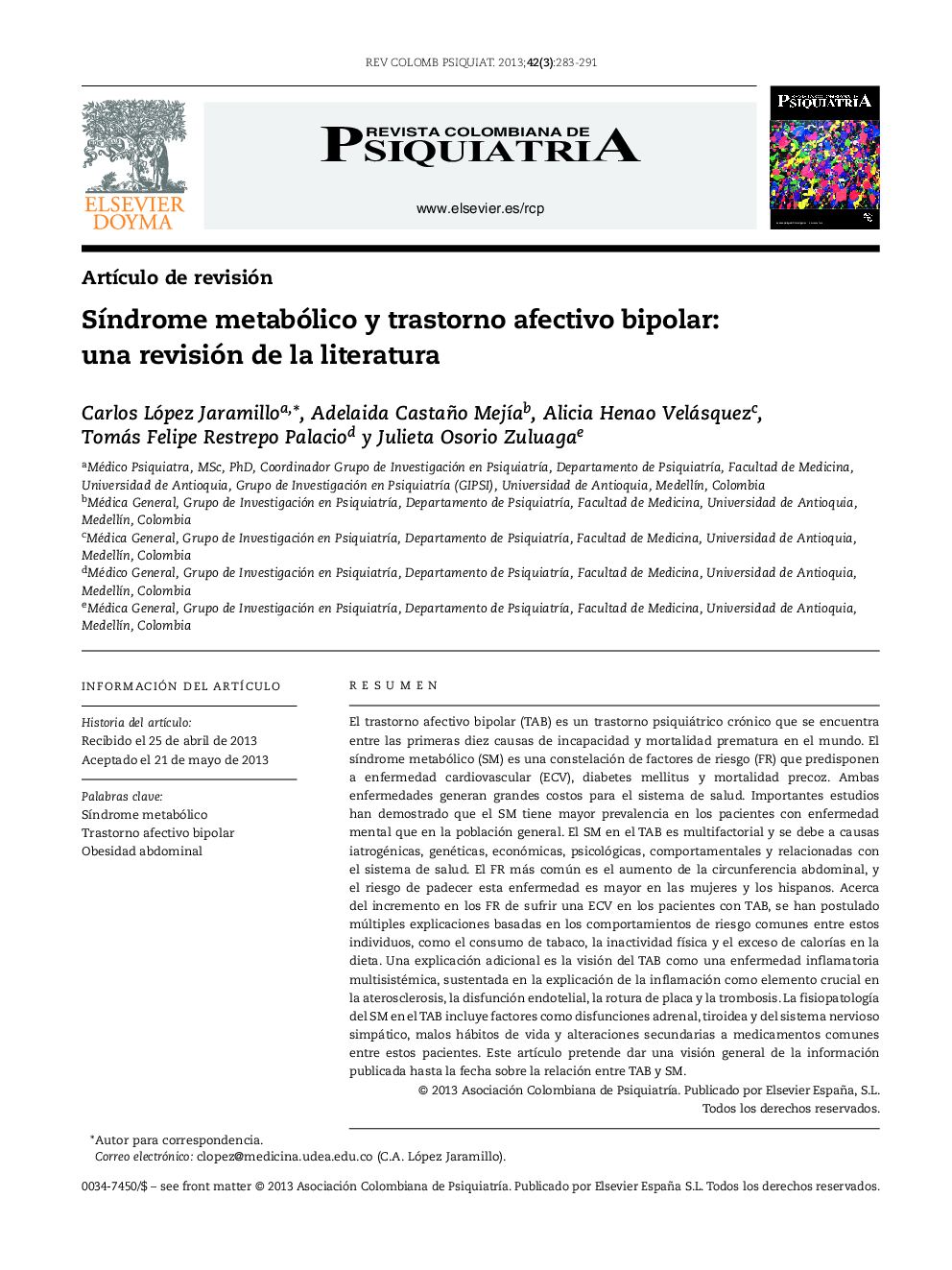| Article ID | Journal | Published Year | Pages | File Type |
|---|---|---|---|---|
| 4190755 | Revista Colombiana de Psiquiatría | 2013 | 9 Pages |
Abstract
Bipolar disorder (BD) is a chronic psychiatric disorder that is found within the first ten causes of disability and premature mortality. The metabolic syndrome (MS) is a group of risk factors (RF) that predispose to cardiovascular disease (CV), diabetes and early mortality. Both diseases generate high costs to the health system. Major studies have shown that MS has a higher prevalence in patients with mental disorders compared to the general population. The incidence of MS in BD is multifactorial, and due to iatrogenic, genetic, economic, psychological, and behavioral causes related to the health system. The most common RF found is these patients was an increased abdominal circumference, and it was found that the risk of suffering this disease was greater in women and Hispanic patients. As regards the increase in RF to develop a CV in patients with BD, there have been several explanations based on the risky behavior of patients with mental illness, included tobacco abuse, physical inactivity and high calorie diets. An additional explanation described in literature is the view of BD as a multisystemic inflammatory illness, supported by the explanation that inflammation is a crucial element in atherosclerosis, endothelial dysfunction, platelet rupture, and thrombosis. The pathophysiology of MS and BD include factors such as adrenal, thyroid and sympathetic nervous system dysfunction, as well as poor lifestyle and medication common in these patients. This article attempts to give the reader an overall view of the information published in literature to date, as regards the association between BD and MS.
Keywords
Related Topics
Health Sciences
Medicine and Dentistry
Psychiatry and Mental Health
Authors
Carlos López Jaramillo, Adelaida Castaño MejÃa, Alicia Henao Velásquez, Tomás Felipe Restrepo Palacio, Julieta Osorio Zuluaga,
